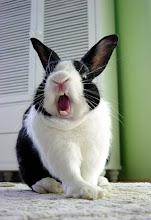The wine also serves as a foreshadowing device toward the French Revolution. The wine stained everything it splashed upon. The streets were dyed red and the word "BLOOD" was painted onto the wall, which symbolized that the streets will once again be dyed red, but with blood. Violent weapons like gallow-ropes, knives, axes, and guns, along with the word "murderous" are introduced. All these components of poverty and violence symbolize the events to come that the peasants are building up to. It all foreshadows the French Revolution.
"It was a heavy mass of a building, that chateau of Monsieur the Marquis,with a large stone court-yard before it, and two stone sweeps of staircase meeting in a stone terrace before the principal door. A stony business altogether, with heavy stone balustrades, and stone urns, and stone flowers, and stone faces of men and stone heads of lions, in all directions. As if the Gorgon's head had surveyed it, wen it was furnished, two centuries ago" (90).
This passage describes in descriptive imagery of the abode of Marquis. The repetition of the word "stone" is unavoidable. Everything, when describing the possessions of the man, is described as stone. There is even an allusion of the mythical Gorgon, or Medusa, who with a stare turns everything her eye touches into stone. The word is not only describing Marquis's home, but also Marquis himself as a cold, heartless, man made of stone. An example made to prove this was when he ran over a child, killing the child, and threw coins at the grieving father to make the pain and inconvenience go away. Marquis symbolizes the the evil side of the French aristocracy.
Though I did not enjoy reading this novel, it did provide excellent imagery. The repetition that occurred was also magnificent. The point was well proven. The subject of poverty greeted the reader within the first few chapters. I believe I would have enjoyed this novel more, for selfish reasons, like if it were shorter. Description has never been my forte, I've never liked it. Too much description intervenes with my interest with the novel.

No comments:
Post a Comment